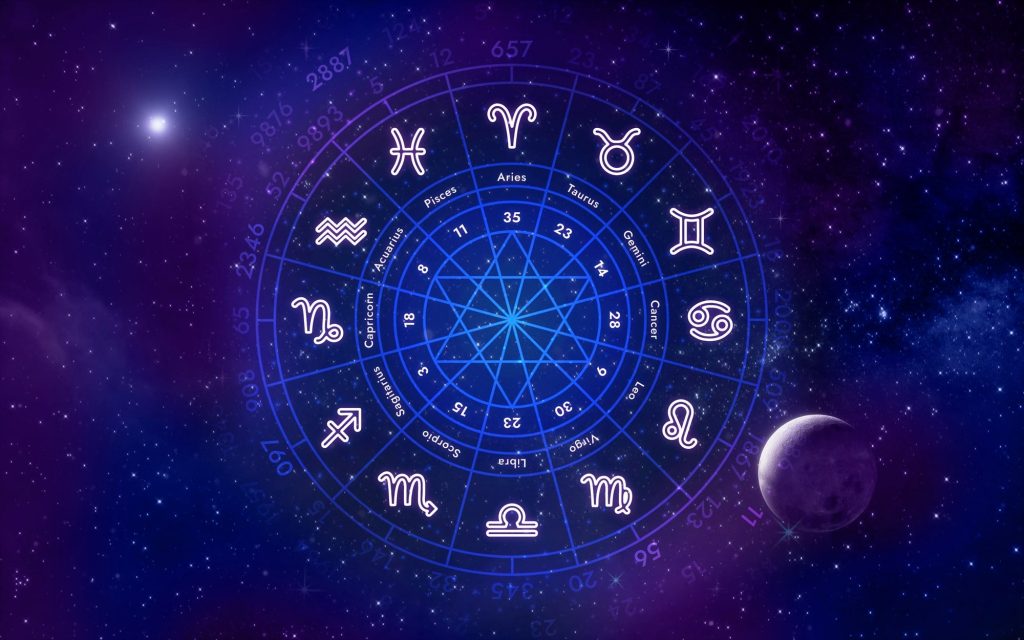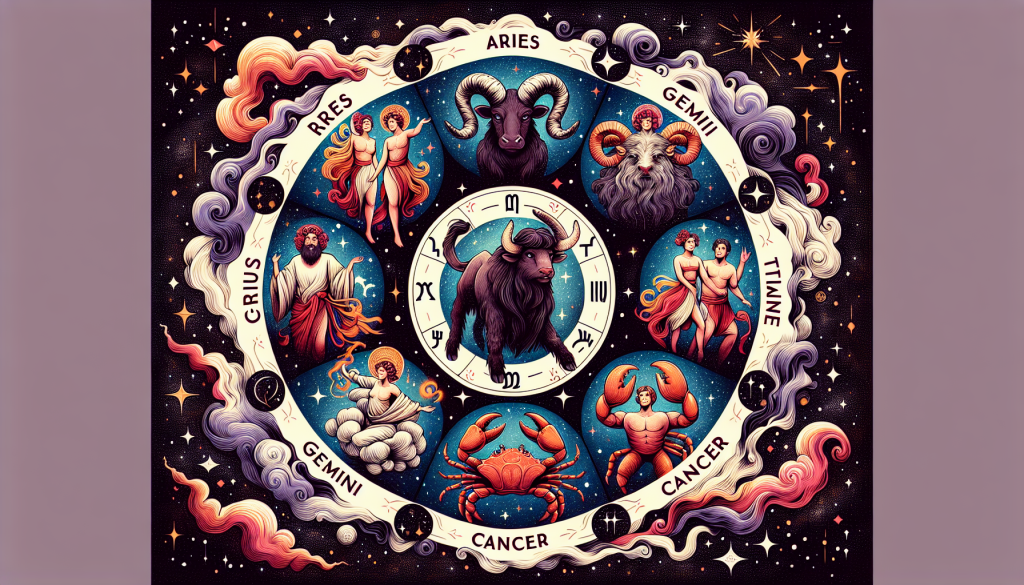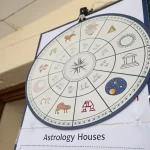
Astrology, a practice that has spanned thousands of years, encompasses numerous systems and traditions aimed at interpreting celestial influences on human lives and events. From ancient systems like Vedic astrology, which traces its roots back millennia, to modern variations, understanding the different types of astrology can be both intriguing and insightful. This article explores the various types of astrology in simple terms, highlighting how each system offers unique perspectives.
What is Astrology?
Astrology is an age-old practice that seeks to understand how celestial bodies influence human affairs and natural events. It involves studying the positions and movements of planets, stars, and other celestial phenomena to discern their effects on individual personalities, behaviors, and life events.
The Basics of Astrology
At its core, astrology is based on the belief that the positions of celestial bodies at the time of a person’s birth can provide profound insights into their character, life path, and potential future events. This concept hinges on the idea of a connection between the macrocosm (the universe) and the microcosm (individual humans).
Different Types of Astrology
Astrology is far from a monolithic practice; it includes various systems, each with its own methodologies, traditions, and interpretations. Let’s delve into some of the most prominent types of astrology, each offering unique insights into the relationship between celestial movements and human affairs.
1. Western Astrology
Western astrology, the most prevalent type in the Western world, uses the tropical zodiac system. This system divides the sky into 12 equal parts, each representing a zodiac sign linked to the four seasons and the Earth’s orbit around the Sun. Western astrology primarily focuses on the Sun sign, determined by the Sun’s position at birth.
Key Features:
- Uses the tropical zodiac
- Divides the sky into 12 equal parts (zodiac signs)
- Focuses on Sun signs, Moon signs, and Ascendants
- Popular for horoscopes and personality analysis
- Interprets celestial movements to provide insights into daily life and human affairs
2. Vedic Astrology (Jyotish)
Vedic astrology, also known as Jyotish or Hindu astrology, is an ancient system from India. It uses the sidereal zodiac, aligned with the constellations, and incorporates elements of Hindu philosophy, spirituality, and karma. This system places a strong emphasis on the Moon sign and the ascendant.
Key Features:
- Uses the sidereal zodiac
- Emphasizes the Moon sign and ascendant
- Incorporates karma and spirituality
- Known for detailed birth charts (Kundali)
- Provides profound insights into human affairs through spiritual and karmic elements
3. Chinese Astrology
Chinese astrology is based on a 12-year lunar cycle, with each year represented by an animal sign. The 12 animal signs are Rat, Ox, Tiger, Rabbit, Dragon, Snake, Horse, Goat, Monkey, Rooster, Dog, and Pig. This system also considers the five elements (Wood, Fire, Earth, Metal, and Water) and the concept of Yin and Yang.
Key Features:
- Based on a 12-year lunar cycle
- Each year corresponds to an animal sign
- Incorporates five elements and Yin-Yang philosophy
- Focuses on personality traits and compatibility
- Provides insights into human affairs by analyzing personality traits and compatibility
4. Hellenistic Astrology
Originating in the Hellenistic period in ancient Greece and Egypt, Hellenistic astrology combines Babylonian and Egyptian traditions and forms the foundation of Western astrology. It emphasizes the importance of planetary positions and aspects, particularly in natal charts.
Key Features:
- Originated in ancient Greece and Egypt
- Combines Babylonian and Egyptian traditions
- Focuses on planetary positions and aspects
- Forms the basis of Western astrology
- Provides insights into human affairs through the analysis of planetary positions and aspects
5. Mayan Astrology
Mayan astrology is based on the Mayan calendar, which includes various cycles such as the Tzolk’in (260-day cycle) and the Haab’ (365-day cycle). It identifies 20-day signs and 13 galactic numbers, resulting in a 260-day cycle. Mayan astrology offers insights into personality, destiny, and life purpose.
Key Features:
- Based on the Mayan calendar
- Utilizes the Tzolk’in (260-day cycle) and Haab’ (365-day cycle)
- Identifies 20-day signs and 13 galactic numbers
- Offers insights into personality and life purpose
- Analyzes human affairs by examining personality, destiny, and life purpose
6. Tibetan Astrology
Tibetan astrology, also known as Tsi, blends Indian, Chinese, and indigenous Tibetan traditions. It comprises two main systems: Kartsi (white astrology) and Naktsi (black astrology). Kartsi is influenced by Indian astrology, while Naktsi incorporates Chinese elements. Tibetan astrology is used for personal readings, medical purposes, and spiritual guidance.
Key Features:
- Blends Indian, Chinese, and Tibetan traditions
- Includes Kartsi (white astrology) and Naktsi (black astrology)
- Used for personal readings and medical purposes
- Provides spiritual guidance
- Offers insights into human affairs through personal readings, medical purposes, and spiritual guidance
7. Kabbalistic Astrology
Kabbalistic astrology is rooted in Jewish mysticism and Kabbalah. It seeks to understand the soul’s journey and purpose in life. Using the Hebrew calendar and the positions of the planets, it provides insights into an individual’s spiritual path and karmic lessons.
Key Features:
- Based on Jewish mysticism and Kabbalah
- Uses the Hebrew calendar and planetary positions
- Focuses on the soul’s journey and purpose
- Provides insights into spiritual and karmic lessons
- Offers insights into human affairs by focusing on the soul’s journey and purpose
8. Evolutionary Astrology
Evolutionary astrology centers on the concept of the soul’s evolution through multiple lifetimes. It examines the natal chart to uncover past life influences and current life lessons. This type of astrology emphasizes personal growth, healing, and transformation.
Key Features:
- Focuses on the soul’s evolution through lifetimes
- Examines past life influences and current life lessons
- Emphasizes personal growth and healing
- Encourages transformation and self-awareness
- Provides insights into human affairs by emphasizing personal growth, healing, and transformation
Exploring Different Types of Astrology Charts

Astrology charts, also known as birth charts or natal charts, are essential tools in astrology. These charts map the positions of celestial bodies at the time of an individual’s birth, offering valuable insights into human lives and events.
Natal Chart (Birth Chart)
A natal chart, or birth chart, is a fundamental tool in both Western and Vedic astrology. It provides a snapshot of the sky at the moment of birth, detailing the positions of the Sun, Moon, planets, and other celestial bodies. The natal chart is used to analyze personality traits, life events, and potential challenges.
Synastry Chart
A synastry chart compares the natal charts of two individuals to assess their compatibility and relationship dynamics. Commonly used in Western astrology, it evaluates romantic relationships, friendships, and business partnerships.
Composite Chart
A composite chart creates a single chart by averaging the positions of planets in two natal charts. This type of chart is used to understand the dynamics of a relationship as a whole, rather than focusing on individual traits.
Transit Chart
A transit chart tracks the current positions of planets in relation to an individual’s natal chart. It is used to predict upcoming events, challenges, and opportunities, providing valuable insights into timing and life changes.
Progressed Chart
A progressed chart is a method used to forecast future developments by advancing the natal chart forward in time. It reveals how an individual’s personality and life circumstances have evolved over the years.
Diffrent Types of Astrology Readings
Astrology readings offer personalized insights based on various astrology types. Let’s explore some common types of astrology readings.
Natal Chart Reading
A natal chart reading interprets an individual’s birth chart, providing insights into personality, strengths, weaknesses, and life path. It helps individuals understand themselves better and make informed decisions.
Compatibility Reading
A compatibility reading, or synastry reading, analyzes the relationship dynamics between two individuals. It highlights strengths, challenges, and potential growth areas in relationships.
Transit Reading
A transit reading examines the current planetary transits and their impact on an individual’s life. It offers guidance on navigating upcoming events and making the most of opportunities.
Solar Return Reading
A solar return reading focuses on the Sun’s return to its natal position, which occurs once a year around an individual’s birthday. It provides insights into the themes and challenges for the coming year.
Evolutionary Reading
An evolutionary reading delves into the soul’s journey and past life influences. It offers guidance on personal growth, healing, and spiritual development.
Frequently Asked Questions (FAQs)
What’s the difference between Vedic and Western astrology?
Vedic astrology, or Jyotish, uses the sidereal zodiac, aligning with the constellations, and emphasizes the Moon sign and ascendant. Western astrology uses the tropical zodiac, based on the seasons and Earth’s orbit around the Sun, focusing mainly on the Sun sign. Both offer unique insights into human affairs through their methodologies.
How can a natal chart be unique to each individual?
A natal chart is unique because it captures the precise positions of celestial bodies at the exact time and place of an individual’s birth. This specific snapshot creates a personalized map of the sky, offering unique insights into one’s personality and life path.
Can astrology predict the future?
Astrology provides insights into potential future trends and influences based on the positions of celestial bodies. While it can offer guidance on upcoming events, it does not predict specific outcomes with absolute certainty.
Is astrology scientifically proven?
Astrology is not considered a science by the scientific community. It is viewed as a belief system or symbolic language. While many find value in astrological interpretations, they lack empirical evidence and scientific validation.
Are the zodiac signs the same across all astrology?
No, zodiac signs can vary across different astrology types. Western astrology uses the tropical zodiac, while Vedic astrology uses the sidereal zodiac. Chinese astrology’s zodiac is based on a 12-year lunar cycle, with each year represented by an animal sign. Each system offers unique insights through its interpretation of zodiac signs.
Conclusion
Exploring the different types of astrology reveals a rich tapestry of traditions, each offering unique insights into human affairs and the cosmos. Whether you’re drawn to Western astrology, Vedic astrology, or any other system, there’s a wealth of knowledge to discover. For personalized astrology readings and customizable birth charts, visit Deluxe Astrology. Unlock the mysteries of the stars and gain deeper insights into your life’s journey with our expert astrologers and free astrology tools.
Recent Posts

Astrology Houses Explained: Meaning of Each Chart House in Your Natal Chart
Aryan K | April 11, 2025

Ultimate Guide to Enchanting Japanese Baby Boy Names
Aryan K | April 11, 2025

The Truth About October 24th Zodiac Scorpio Traits and Destiny
Olivia Marie Rose | April 11, 2025

Beautiful Rare Girl Names with Deep Meaning and Enchanting Pronunciation – 250+ Hidden Gems from Around the World
Aryan K | April 10, 2025

May 10 Zodiac Sign: Embracing the Unyielding Spirit of Taurus
Aryan K | April 10, 2025
Topics
- 4 Digit Angel Numbers
- 5 Digit Angel Numbers
- 6 Digit Angel Numbers
- Astrology and Birth Charts
- Business Astrology
- Career Astrology
- Celebrities and Personalities Astrological Profile
- Children Astrology
- Chinese Astrology
- Different Angel Numbers Meaning
- Double Digit Angel Numbers
- Dreams Interpretation
- Festivals
- Finance Astrology
- Find Baby Names
- Find Best Astrologers
- Gemstones and Birthstones
- Janam Kundli Chart
- Love Astrology
- Marriage Prediction Astrology
- Nakshatra (Constellations)
- Numerology
- Pet Astrology
- Rudraksha Beads
- Single Digit Angel Numbers
- Spirit Animals
- Spirituality and Positivity
- Stars, Planets and Cosmic
- Symbolism
- Tarot Cards
- Triple Digit Angel Numbers
- Understanding Hinduism
- Vastu Shastra
- Vedic Astrology
- Western Astrology
- Yoga and Meditation
- Zodiac Sign Date Calendar
- Zodiac Signs
- Zodiac Signs Compatibility
